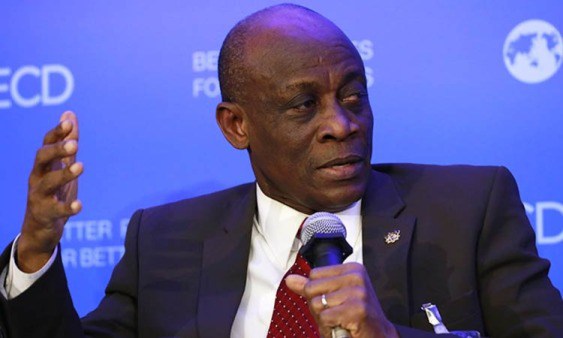Seth Terkper, a former Minister of Finance, has urged African governments to strive to make their debts sustainable to attract development finance assistance.
“Africa must do something about its debt, otherwise, we might be shut out of development finance,” Mr Terkper who led Ghana’s 16th International Monetary Fund (IMF) loan-support programme, said.
Mr Terkper, also the Executive Director of Public Financial Management (PFM) Tax Africa Network – a consulting firm, was engaging journalists virtually on the back of the just ended International Monetary Fund/World Bank Group (WBG) annual meetings in Washington, US.
He explained that because many African countries have reached lower and middle-income status, they could no longer rely on grants and concessional financing for sustainable development and poverty alleviation.
As such, development finance would be supportive going forward, hence, the need for African governments to assiduously work towards resolving their debt burden.
In its April 2024 Regional Economic Outlook for Sub-Saharan Africa, the IMF observed that after four turbulent years, the region has seen some gradual improvement.
The region’s growth is projected to rise from 3.4 per cent in 2023 to 3.8 per cent in 2024, but the report noted that “not all is favourable,” as the funding squeeze persisted.
The report indicated that governments in the region continued to grapple with financing shortages, high borrowing costs, and impending debt repayments, which ought to be dealt with.
“Amid these challenges, sub-Saharan African countries will need additional support from the international community to develop a more inclusive, sustainable, and prosperous future,” the report noted.
Regarding policies policy priorities, Mr Abebe Aemro Selassie, African Department, IMF, said it was important for African governments to continue to improve public finances, with an emphasis on domestic revenue mobilisation.
He was speaking on the release of the April IMF Regional Economic Outlook for Sub-Saharan Africa, last week.
He also encouraged a sustained focus on inflation reduction, while implementing reforms to enhance skill development, spur innovation, improve the business environment, and promote trade integration to secure more affordable and stable financing.
Latest Stories
-
Power crisis: Amandi is off due to maintenance, not debt – ECG Boss
22 mins -
Votes cast for late Akua Donkor to be declared invalid – Electoral Commission
37 mins -
You can’t keep “incompetent” Otto Addo for the long term – Countryman Songo
47 mins -
Joy FM holds 2024 Prayer Summit for Peace
1 hour -
Lady sues Police and AG over assault in custody
2 hours -
Ghana’s railway sector has been revived under my leadership – Akufo-Addo
3 hours -
Next government must enforce C190 – Women Economic Dialogue Forum
3 hours -
NCCE engages party youth activists at Nandom on peaceful election
3 hours -
SSNIT engages stakeholders on its operations
3 hours -
Defilement: 19-year-old farmer jailed ten years, with hard labour
3 hours -
Bawumia to inaugurate new headquarters of Lands Commission on November 25
3 hours -
Sylvester Tetteh denies demolishing GBC staff bungalow
3 hours -
Signing of peace pact by presidential candidates slated for November 28
3 hours -
Akufo-Addo reiterates commitment to free and fair elections
3 hours -
Climate change impact poses threat to Ghana’s financial stability – BoG Governor
3 hours

